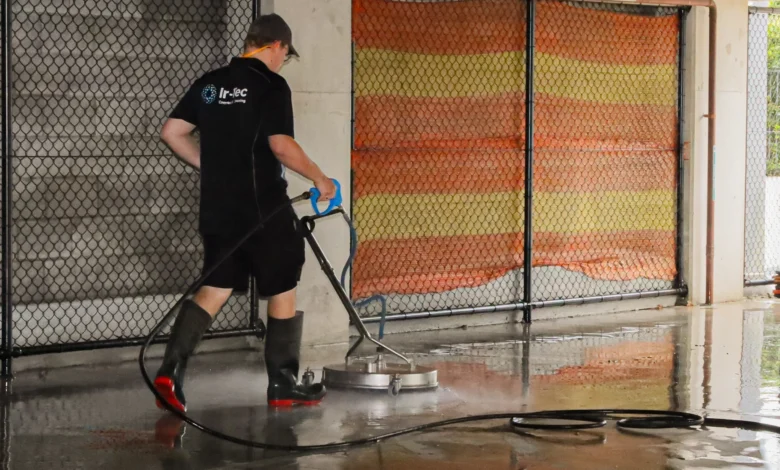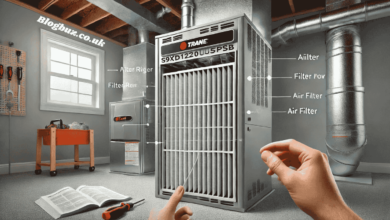What Most People Get Wrong About House and Commercial Cleaning Services

Cleaning is one of those things everyone assumes they understand—until they’re faced with the reality of maintaining a space day in and day out. Whether it’s a busy office or a bustling household, misconceptions about cleaning are everywhere. From believing that certain products solve everything to underestimating the complexity of commercial cleaning protocols, myths often get in the way of true cleanliness.
Understanding what cleaning actually entails, and how it differs by setting and need, is key to better hygiene, productivity, and peace of mind.
Let’s take a closer look at the most common misconceptions about cleaning services, especially when it comes to house cleaning services, commercial cleaning services, and deep cleaning needs.
Myth 1: “A Clean-Looking Space Is a Clean Space”
The biggest illusion in the world of cleaning is the one we create ourselves—assuming that if something looks clean, it must be clean. Shiny countertops, organized desks, and vacuumed carpets may visually reassure us, but they don’t necessarily reflect what’s happening beneath the surface.
Bacteria, allergens, and dust mites often remain even after regular cleaning routines. Surfaces that appear spotless may still harbor contaminants, especially in high-touch zones like door handles, remote controls, and light switches.
This is especially important in commercial environments. Offices that appear tidy might still suffer from low air quality, dust build-up in ventilation systems, and neglected communal equipment. That’s why commercial cleaning services go beyond the visual—sanitizing, deodorizing, and deep cleaning areas that are frequently used but rarely cleaned properly.
Myth 2: “All Cleaning Products Are Essentially the Same”
Walk down the cleaning aisle at any store and you’ll find rows of colorful bottles promising miraculous results. But not all products are created equal—nor are they appropriate for every surface or setting.
Disinfectants, degreasers, enzymatic cleaners, and all-purpose sprays all have different applications and chemical structures. Using the wrong product can result in surface damage, residue buildup, or even ineffective sanitation.
For example, using an alcohol-based spray on a porous surface can actually drive bacteria deeper into the material. Likewise, relying on bleach in poorly ventilated spaces can degrade air quality over time.
Professional teams like Sunshine Clean Pros are trained to select and use the right tools and solutions for different materials, ensuring that cleaning efforts are both safe and effective.
Myth 3: “You Only Need Deep Cleaning Once a Year”
Annual spring cleaning may be a tradition, but limiting deep cleaning to a once-a-year event isn’t enough. Deep cleaning refers to a thorough, detailed process that targets buildup in places that standard cleaning often misses—under appliances, in tile grout, air vents, baseboards, and more.
The frequency of deep cleaning depends on the use of the space. In households with kids, pets, or high foot traffic, quarterly deep cleaning may be ideal. Offices and commercial settings, where surfaces are shared daily, often require monthly or bi-monthly schedules.
Deep cleaning supports not only sanitation but also longevity. Appliances, carpets, and HVAC systems perform better and last longer when maintained properly.
Myth 4: “Anyone Can Do It the Same Way a Professional Can”
While it’s true that cleaning isn’t rocket science, there is a vast difference between DIY cleaning and professional service. Experience, equipment, and efficiency separate casual cleaning from expert-level results.
Professionals understand sequencing—what to clean first, what to sanitize last, and how to avoid cross-contamination. They’re trained to handle hazardous materials, navigate delicate surfaces, and apply consistent quality throughout a space.
Additionally, companies offering house cleaning services and commercial cleaning services bring industry-level equipment like HEPA vacuums, steam cleaners, and industrial-grade disinfectants that outperform most home supplies.
It’s not about being incapable—it’s about the time, tools, and expertise that professional cleaners bring to the table.
Myth 5: “Commercial Cleaning Is Just Bigger House Cleaning”
This is a common misunderstanding. While both involve cleaning indoor spaces, commercial cleaning is a different discipline altogether. It often involves compliance with health regulations, coordination with building managers, specialized waste removal, and sometimes even biohazard protocols.
Cleaning a retail showroom, medical office, or shared workspace includes unique challenges—like maintaining sanitization schedules, avoiding disruption during business hours, and using low-odor or quick-drying products.
Just as you wouldn’t use a home oven to cater a large event, residential cleaning methods often fall short in commercial contexts.
Myth 6: “Cleaning Services Are a Luxury”
Many people hesitate to hire professional cleaning services under the belief that they’re an unnecessary expense. But when viewed through the lens of time savings, improved health, and extended life of furnishings and fixtures, the investment becomes practical—sometimes even essential.
For busy families or individuals juggling multiple responsibilities, outsourcing cleaning isn’t indulgent—it’s strategic. It allows people to reclaim their time and focus on priorities without sacrificing cleanliness.
In the workplace, a clean environment contributes to lower absenteeism, higher employee satisfaction, and a better impression for clients and visitors. Far from a luxury, cleaning becomes part of the business infrastructure.
Myth 7: “Fragrance Means Clean”
Scented candles, air fresheners, and cleaning products with strong fragrances create a perception of cleanliness—but scent alone doesn’t equate to sanitation.
Many fragrances simply mask underlying odors without addressing their cause. Worse, heavily scented products can aggravate allergies or asthma in sensitive individuals.
True cleanliness has little to do with smell and everything to do with what’s removed—bacteria, dust, and grime—not what’s added to the air.
Final Thoughts
Understanding what cleaning actually involves—beyond visual satisfaction—is key to maintaining healthy, productive spaces. Whether you’re trying to manage a household or ensure that your business environment meets today’s hygiene expectations, busting these myths is a good first step.
Professional cleaners offer more than convenience—they provide consistency, safety, and long-term value. The more you understand about their role, the better you can make informed choices about how and when to use their services.
Brands like Sunshine Clean Pros are part of a growing movement that emphasizes smart, strategic, and results-driven cleaning, whether for homes, offices, or anything in between.




